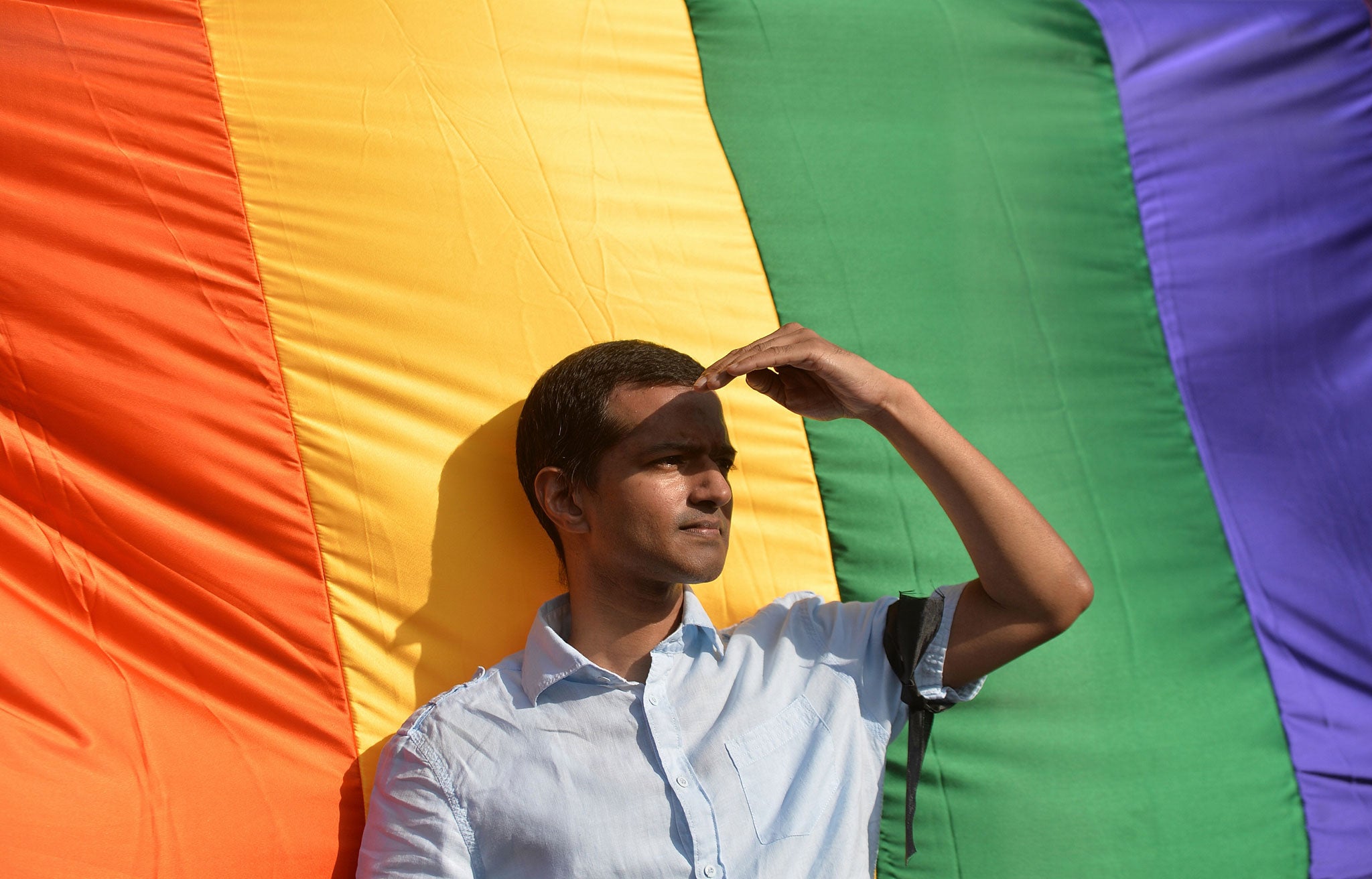Gay sex ban in India is an absolute travesty
Just how many legislators and lawmakers are hiding their sexuality?

Your support helps us to tell the story
From reproductive rights to climate change to Big Tech, The Independent is on the ground when the story is developing. Whether it's investigating the financials of Elon Musk's pro-Trump PAC or producing our latest documentary, 'The A Word', which shines a light on the American women fighting for reproductive rights, we know how important it is to parse out the facts from the messaging.
At such a critical moment in US history, we need reporters on the ground. Your donation allows us to keep sending journalists to speak to both sides of the story.
The Independent is trusted by Americans across the entire political spectrum. And unlike many other quality news outlets, we choose not to lock Americans out of our reporting and analysis with paywalls. We believe quality journalism should be available to everyone, paid for by those who can afford it.
Your support makes all the difference.There is a painful irony to the Indian Supreme Court ruling reinstating a 153-year-old colonial era law that criminalises homosexuality. As an Indian, I find it baffling that the very keepers of Indian morality - the populist Hindu yogi, the sharia-upholding Muslim groups, the khadi-clad patriotic politicians - fail to realise that the law that they are defending was put in place by Victorians drunk on muscular Christianity.
In my time spent as a journalist in India I have seen the effects of Section 377 of the Indian Penal Code. I have seen teenagers and grown men turned into nervous wrecks by the threat of bullying and blackmail. I have seen toxic arranged marriages and enforced bachelor-hoods, suicides and lives lived in guilt and admonition. No, it is not worth it. The Victorians were wrong and much like their plumbing their laws need a refit.
In many ways the objections raised against homosexuality in India are a compressed parody of homophobia around the world. The Indian armed forces is loathe to allow it for fear of soldiers making love in barracks. The middle classes whisper in concern of the effect all this progressive nonsense is having on their children. Talk show hosts snigger and comedians openly ridicule gays on national television. My own family, who are observant Brahmins, would never allow an openly gay person to ever enter our home lest they ‘spread their degeneracy’.
The never-ending paradoxes of India have brought us to a state and time where on one hand the nation can launch space missions whilst on the other it establishes a Neanderthal law telling adult men they can and can’t do with their penises.
The only way that this travesty will be repealed is if the Indian Parliament legislates on it and an amendment is passed. This seems highly unlikely in a deeply conservative country where attempting to float such a bill would be akin to committing political hara-kiri. More troubling is the statistically improbability of there being not a single gay politician in a country of more than a billion people. Just how many legislators and lawmakers are hiding their sexuality for the fear of persecution?
An exception, Prince Manvendra Singh Gohil, of the erstwhile rulers of Rajpipla, emerged from the gilded closet in 2002. Life for the dapper young royal has not been the same since. Ostracised by his family, feted on Oprah and propositioned in a gay bar in Brighton the awkward and soft-spoken Prince Manvendra highlights the complexities of coming out for an Indian man.
In a sea of homophobia in South Asia, if there was ever an island of hope it was India. Pakistan, Nepal, Afghanistan, Bangladesh and Burma are all less welcoming. On the scale of progressivism, India has now fallen far behind China where homosexuality was decriminalised in 1997 and removed from the list of mental illnesses in 2001.
Just before the Supreme Court ruling, India was in the twilight zone, between its regressive past and an optimistic progressive future. Many other nations emerging from decades of colonialism or communism have found themselves in the same place before and prevailed. After this bafflingly wrongheaded ruling, let us hope that India can turn itself back in the right direction. Repeal must be the start.
Join our commenting forum
Join thought-provoking conversations, follow other Independent readers and see their replies
Comments